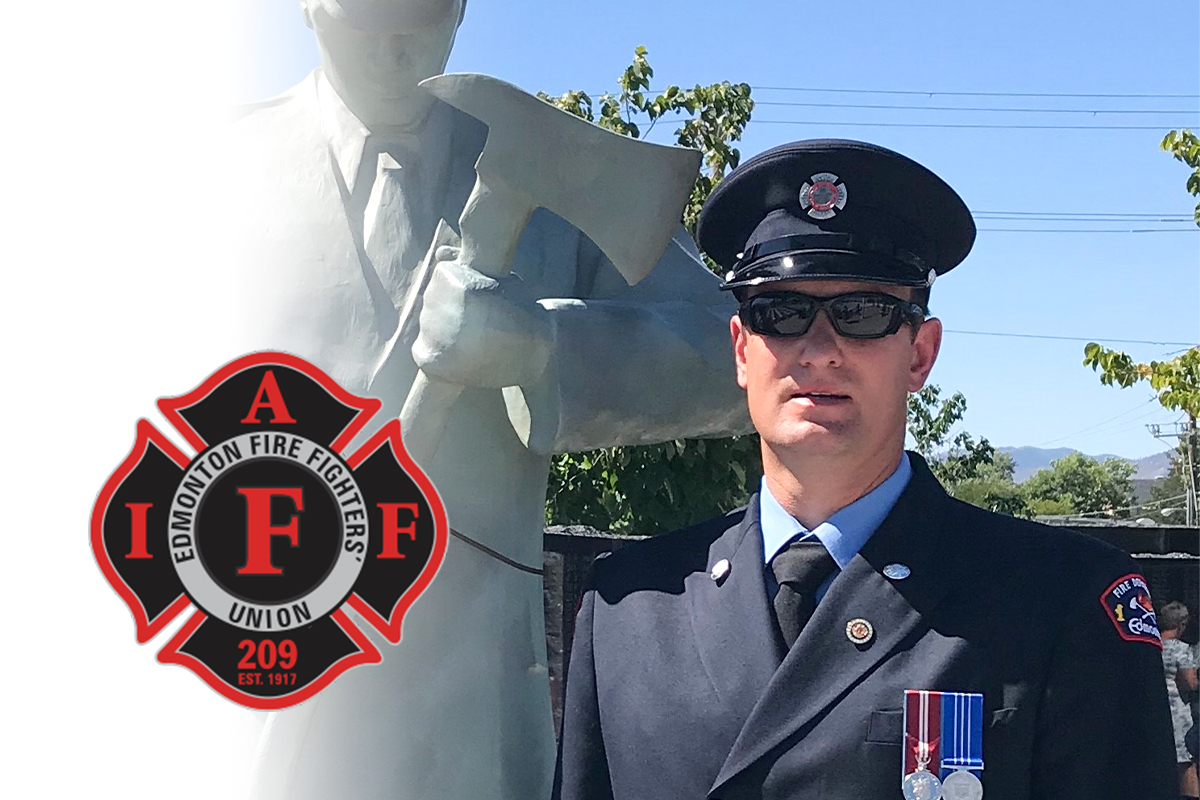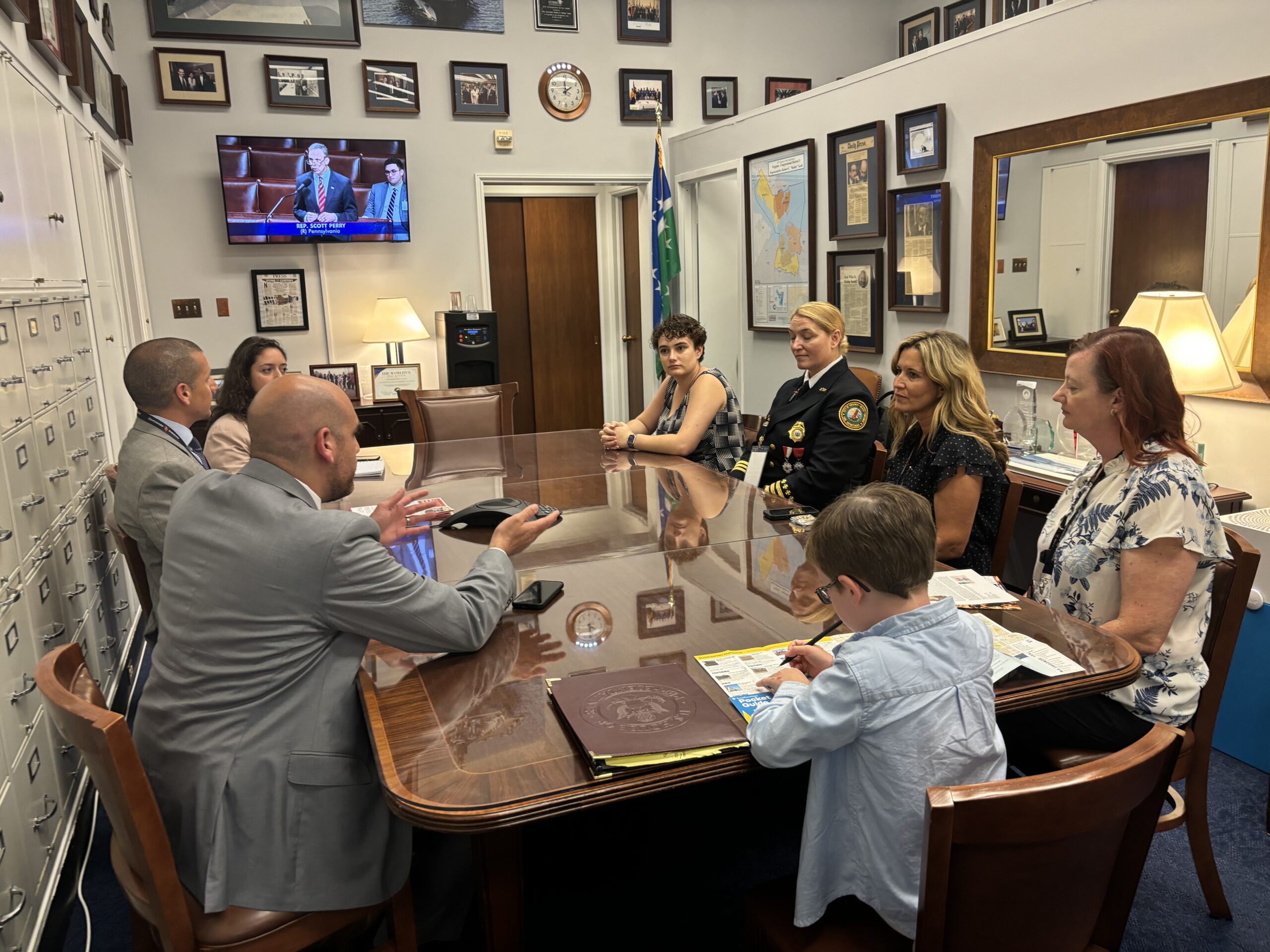
When Edmonton, Alberta fire fighter Greg Rehman was diagnosed with prostate cancer at the age of 44, the specialist who diagnosed him called it “an old man’s disease” and expressed surprise to see it in someone his age who had no family history of it.
Even when Rehman explained his profession as a fire fighter gave him an increased risk of prostate cancer, the doctor was skeptical about the link.
Rehman, who is now 49, was diagnosed early thanks to the fact that Edmonton Fire Rescue Services has adopted the IAFF’s Wellness-Fitness Initiative (WFI), which includes baseline medical testing for a number of occupational illnesses, including cancers. It was through this testing that spikes in Rehman’s prostate-specific antigen (PSA) levels were suddenly detected in April 2018 after three years of regular readings.
“There was nothing going on, my life was normal. But as part of my annual medical through our department and our WFI program, they screen for prostate cancer prior to age 50. So I was able to track my PSA levels. All the sudden they said I was getting to the upper limit, and then the next year I was over, and they said I need to follow up with my family doctor,” says Rehman, a fire fighter for 25 years who currently serves as Edmonton Local 209 President.
In some cases, like Rehman’s, a prostate cancer diagnosis doesn’t require immediate intervention. Instead, doctors perform what’s called active monitoring, which avoids intervention such as surgery as long as the cancer advances slowly. Rehman has had biopsies and will continue to have his PSA levels tested regularly through the WFI program to monitor the cancer’s status.
Rehman points out that monitoring prostate cancer over time not only avoids unnecessary surgery and its side effects, but also allows time for advances in medical treatments to come into play when or if it advances to a state where medical intervention is necessary.
According to the Canadian Cancer Society, prostate cancer is the most common cancer among men, with one in eight being diagnosed with the disease in their lifetime. Nearly 100 per cent of men with prostate cancer will survive at least five years after their diagnosis if the cancer is caught early. But if it’s diagnosed late, just three in 10 are expected to survive five years.
Studies have confirmed that fire fighters are at an increased risk of prostate cancer. Accordingly, almost all provinces include the disease in their list of cancers presumed occupational in fire fighters for the purpose of facilitating workers’ compensation benefits. Rehman’s claim was accepted, and it currently covers incidental expenses related to his medical monitoring, such as time off work and parking. If more significant medical intervention is required in the future, those costs will be covered as well.
Coverage for his cancer through Alberta WCB due to presumptive legislation adds peace of mind, Rehman says. “When you’re in your battle, the last thing you want to worry about is battling WCB. You want to know that you’re covered, they’ve got your back, and you can focus on getting better.”
In response to his experience, Rehman staunchly advocates early cancer screening for those in the firefighting profession, and encourages fire departments to consider adopting the IAFF WFI program, a comprehensive medical and fitness program for fire department personnel developed jointly by the IAFF and the International Association of Fire Chiefs.
“I know some cancers you can’t catch early enough but if you’re not going to your doctor and especially if you don’t have a program like the WFI program, there is no early detection to save you. That’s the benefit of our WFI program and early detection. I wouldn’t have known that I have cancer. Even six years later, I still don’t feel like I have cancer.”
Rehman uses his experience to talk about the importance of medical screening with his Local 209 membership, including the need to self-advocate if a doctor doesn’t understand that fire fighters should be screened for cancer at earlier ages. Fire fighters have been good at fighting for presumptive legislation and for reducing exposures to reduce cancer risks, but focus on early detection has been lacking, he says.
Rehman says the specialist’s lack of understanding at the time of his diagnosis was a good example of why doctors need more education about fire fighters’ increased risk of cancers, something he is glad is part of Bill C-224. Enacted in June 2023, the legislation establishes a national framework to address occupational cancer in fire fighters, including assessing the education needs of the medical community.




